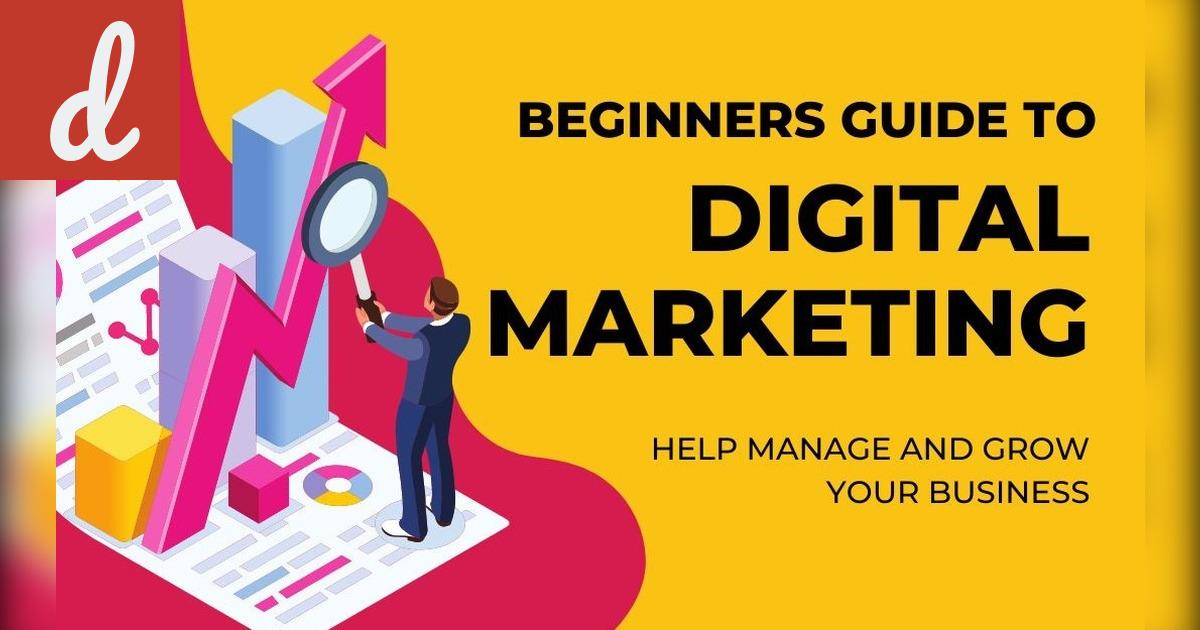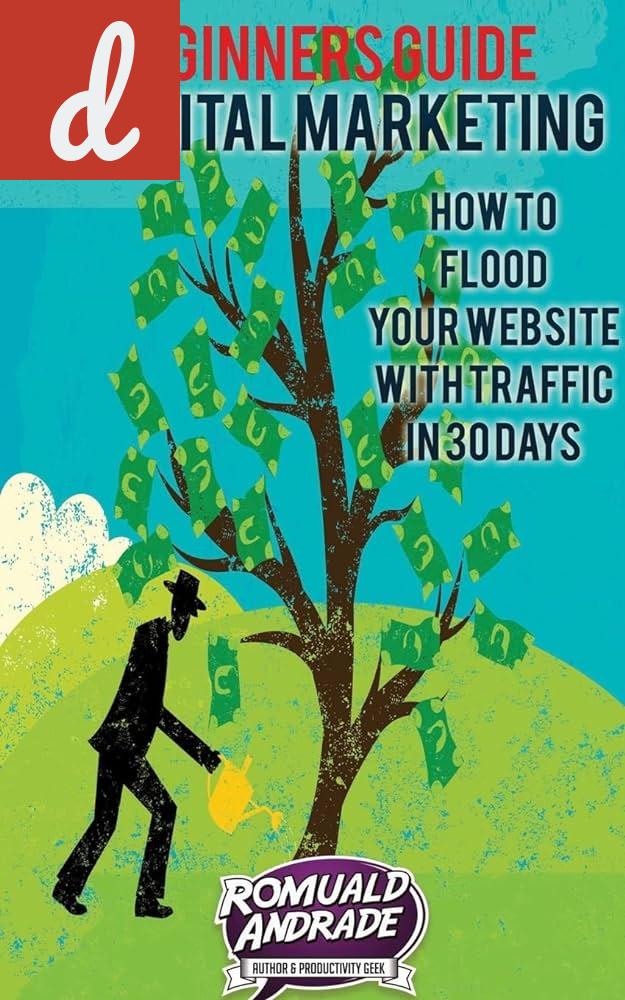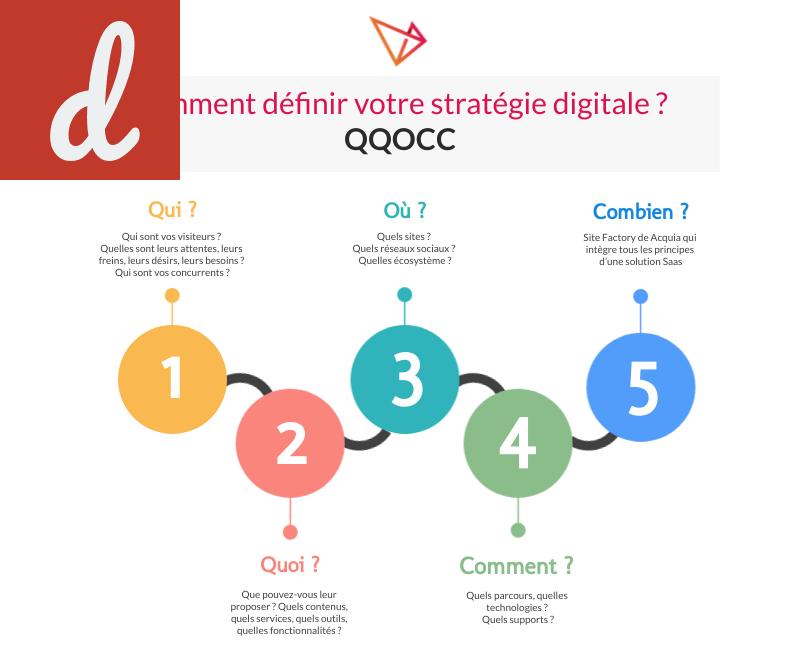Introduction to Digital Marketing
If you're new to the world of marketing, you might have heard the term digital marketing being mentioned quite often. With the advent of the internet and technology, digital marketing has become an essential part of any successful marketing strategy. But what exactly is digital marketing, and how does it work? In this beginner's guide, we will explore the basics of digital marketing and provide you with a solid foundation.
What is Digital Marketing?
Digital marketing refers to promoting products or services using electronic media. This can include various online channels such as search engines, social media, email, and websites. Unlike traditional marketing, which often relies on print advertisements, television commercials, or billboards, digital marketing leverages the power of the internet to reach and engage with a target audience.
The Benefits of Digital Marketing
One of the main advantages of digital marketing is its cost-effectiveness. Traditional marketing methods can be quite expensive, especially for small businesses with limited budgets. Digital marketing provides a more accessible alternative, allowing businesses of all sizes to reach their target customers without breaking the bank.
Another benefit of digital marketing is its ability to provide real-time results. Through various digital analytics tools, marketers can track and measure the success of their campaigns instantly. This allows them to make data-driven decisions and adapt their strategies in a timely manner.
Additionally, digital marketing offers unparalleled targeting capabilities. With traditional marketing, reaching a specific audience can be a challenge. However, through digital channels, marketers can segment their target audience based on demographics, interests, and behaviors, ensuring that their message reaches the right people at the right time.
Types of Digital Marketing
Digital marketing encompasses a wide range of tactics and strategies. Here are some of the most common types of digital marketing:
- Search Engine Optimization (SEO): This involves optimizing websites to improve their visibility on search engine result pages.
- Pay-Per-Click (PPC) Advertising: Marketers can place ads on search engines or social media platforms and only pay when a user clicks on their ad.
- Social Media Marketing: This involves utilizing social media platforms to promote products or services and engage with customers.
- Email Marketing: Marketers can send targeted emails to their subscribers to nurture leads and build customer relationships.
- Content Marketing: This focuses on creating and distributing valuable, relevant, and consistent content to attract and retain a specific audience.
- Affiliate Marketing: Marketers can partner with affiliates to promote their products or services in exchange for a commission.
Getting Started with Digital Marketing
Now that you have a basic understanding of digital marketing, it's time to get started. The first step is to establish your goals. Determine what you want to achieve through your digital marketing efforts, whether it's increasing brand awareness, driving website traffic, generating leads, or boosting sales.
Next, identify your target audience. Who are your ideal customers? What are their demographics, interests, and online behaviors? Understanding your target audience will help you tailor your digital marketing strategies to resonate with them.
Once you have your goals and target audience in mind, it's time to start implementing your digital marketing tactics. Remember to monitor and analyze your results regularly, making adjustments as needed to optimize your campaigns and achieve your desired outcomes.
Conclusion
As technology continues to evolve, digital marketing will remain a vital component of any marketing strategy. By understanding the basics of digital marketing and utilizing the various channels and tactics available, businesses can connect with their target audience and achieve their marketing goals in an effective and cost-efficient way.
So, what are you waiting for? Dive into the world of digital marketing and unlock the immense potential it offers for your business!
Understanding the Basics of Digital Marketing: A Beginner's Guide
Digital marketing has become an essential part of business in today's technologically advanced world. It provides companies with the opportunity to reach a wider audience and promote their products or services online. For beginners looking to delve into the world of digital marketing, it's important to understand the basics. This beginner's guide will help you grasp the core concepts and strategies involved in digital marketing.
One of the fundamental aspects of digital marketing is search engine optimization (SEO). SEO involves optimizing your website and content to rank higher in search engine results. By using relevant keywords, quality content, and optimizing your website's structure, you can improve your website's visibility in search engines like Google.
- List item 1: To effectively implement SEO, you need to conduct keyword research to identify the keywords that potential customers would use when searching for products or services similar to what you offer. By including these keywords in your website's content, meta tags, and headings, you increase the chances of your website appearing in relevant search results.
- List item 2: In addition to keyword optimization, it's also crucial to focus on creating quality content. This involves providing valuable and relevant information to your target audience. Engaging content not only helps attract and retain visitors but also encourages them to share your content, which can result in increased visibility and traffic to your website. Thus, regular blog posts, informative articles, and engaging videos can significantly contribute to your digital marketing success.
Another vital aspect of digital marketing is social media marketing. Social media platforms like Facebook, Instagram, Twitter, and LinkedIn have billions of active users, making them excellent channels for promoting your business. By creating a strong social media presence, you can connect and engage with your target audience, build brand awareness, and drive traffic to your website.
In order to succeed in social media marketing, it's important to define your target audience and choose the right platforms to reach them. Regularly posting engaging content, interacting with your followers, and running targeted ad campaigns are essential strategies to effectively utilize social media as a marketing tool.
Lastly, it's essential to measure and analyze the impact of your digital marketing efforts. This can be done through web analytics. By utilizing tools like Google Analytics, you can track your website's traffic, user behavior, and conversion rates. This data will give you valuable insights into the effectiveness of your digital marketing campaigns and help you make informed decisions to optimize your strategies for better results.
Remember, digital marketing is an ongoing process that requires consistent effort and adaptation. Keeping up with the latest industry trends, experimenting with different strategies, and staying updated with the ever-evolving digital landscape will help you stay ahead of the competition and succeed in your digital marketing endeavors.
Digital Marketing for Beginners: The Ultimate Guide
Are you new to the world of digital marketing? Don't worry, we've got you covered. In this ultimate guide, we will walk you through the basics of digital marketing and provide you with the knowledge you need to kickstart your online marketing journey.
Digital marketing refers to any form of marketing that utilizes electronic devices and the internet to reach and engage with potential customers. With the increasing number of people spending their time online, digital marketing has become a crucial aspect of business growth and success.
- Search Engine Optimization (SEO): One of the most important aspects of digital marketing is SEO. SEO involves optimizing your website and content to rank higher in search engine results pages. By doing proper keyword research, creating high-quality content, and building a strong backlink profile, you can improve your website's visibility on search engines and attract organic traffic.
- Content Marketing: Content marketing revolves around creating and sharing valuable content to attract and retain a target audience. By consistently producing relevant content, such as blog articles, videos, and infographics, you can establish your brand as an authority in your industry and drive engagement and conversions.
It is important to note that content marketing works hand in hand with SEO. By incorporating relevant keywords into your content and optimizing it for search engines, you can enhance your SEO efforts and improve your website's visibility.
Social Media Marketing: With billions of active users, social media platforms present a vast opportunity for businesses to reach and connect with their target audience. By creating a strong social media presence and engaging with your followers through regular posts, comments, and shares, you can increase brand awareness and drive traffic to your website.
Pay-Per-Click Advertising (PPC): PPC advertising involves paying for ads that appear on search engine results pages or on various websites across the internet. By bidding on relevant keywords and optimizing ad campaigns, you can drive targeted traffic to your website and generate leads or conversions.
Email Marketing: Email marketing remains one of the most effective digital marketing strategies. By building an email list of interested subscribers, you can send targeted emails promoting your products or services, nurturing leads, and driving sales. Personalization and automation play a key role in successful email marketing campaigns.
Now that you have a basic understanding of the main components of digital marketing, it's time to start implementing them into your business strategy. Remember to regularly measure and analyze your results to refine your approach and achieve better outcomes.
By staying informed about the latest trends and techniques in digital marketing, you can stay ahead of the competition and achieve your business goals. Good luck!

Mastering Digital Marketing: A Beginner's Handbook
Digital marketing has become an essential part of any business's overall marketing strategy. In today's digital age, having a strong online presence can make or break a company. Whether you are a beginner or have some experience in the field, this beginner's handbook will guide you through the fundamentals of digital marketing and help you develop the skills necessary to succeed in this dynamic field.
One of the key aspects of digital marketing is search engine optimization (SEO). SEO helps your website rank higher in search engine results pages (SERPs) and increases organic traffic to your site. It involves various techniques and strategies to optimize your website, such as keyword research, on-page optimization, and link building.
- Keyword research: This involves finding the right keywords that your target audience is searching for. By including relevant keywords in your website content, you can attract organic traffic and improve your search rankings.
- On-page optimization: This refers to optimizing your website's pages to improve their visibility in search engine results. It includes optimizing meta tags, headings, images, and content structure.
Another important aspect of digital marketing is content marketing. Content is king in the digital world, and creating high-quality, valuable content is crucial for capturing the attention of your target audience. By producing relevant and engaging content, you can attract and retain customers, establish yourself as an industry expert, and increase brand awareness and credibility.
Social media marketing is also a key component of digital marketing. Social media platforms provide a valuable opportunity to connect and engage with your target audience on a personal level. By creating and sharing engaging content on platforms such as Facebook, Twitter, and Instagram, you can build a loyal community of followers, drive traffic to your website, and generate leads.
Email marketing is another powerful tool in the digital marketing arsenal. Building an email list of interested subscribers allows you to directly communicate with your audience and nurture them through the sales funnel. By sending personalized and targeted emails, you can increase brand loyalty, drive conversions, and generate repeat business.
As a beginner in digital marketing, it's important to stay updated with the latest industry trends and tools. Marketing automation tools, analytics platforms, and social media management tools can help streamline your digital marketing efforts and provide valuable insights about your audience and their behavior.
In conclusion, mastering digital marketing requires a strong understanding of various components such as SEO, content marketing, social media marketing, and email marketing. By implementing effective digital marketing strategies, you can stay ahead of the competition, reach a wider audience, and drive business growth. So get started on your digital marketing journey today!
Getting Started with Digital Marketing: A Complete Beginner's Guide
Are you new to the world of digital marketing? Unsure where to start or how to navigate this vast and ever-evolving field? Don't worry, we've got you covered. In this beginner's guide, we will walk you through the basics of digital marketing and provide you with key insights to get you started on the right foot.
Digital marketing is the practice of promoting products or services using digital channels such as search engines, social media, email, and websites. It is an essential component of any modern business strategy as it allows you to reach a wider audience, increase brand awareness, and ultimately drive more sales.
- Search Engine Optimization (SEO)
- Social Media Marketing
Search Engine Optimization (SEO)
One of the most important aspects of digital marketing is SEO. SEO is the process of optimizing your website to improve its visibility in search engine results. When someone searches for a keyword related to your business, you want your website to be one of the top results. This requires optimizing your website's content, structure, and authority.
To get started with SEO, you need to conduct keyword research to identify the keywords and phrases your target audience is using to find products or services similar to yours. Once you have identified these keywords, you can strategically incorporate them into your website's content, titles, headings, and meta tags. Additionally, improving your website's loading speed, mobile-friendliness, and user experience will also contribute to better search engine rankings.
Social Media Marketing
Social media platforms have become a powerful tool for businesses to connect with their target audience and promote their products or services. With billions of users worldwide, platforms like Facebook, Instagram, and Twitter offer businesses a wide range of opportunities for engagement and brand promotion.
To get started with social media marketing, you need to select the platforms that are most relevant to your target audience. Create engaging and shareable content that resonates with your audience. Utilize the various features offered by each platform, such as hashtags, stories, and live videos, to boost your reach and engagement. Social media marketing also involves monitoring and analyzing your performance to refine your strategy and improve results over time.
In conclusion, digital marketing is a vast and complex field, but with the right knowledge and approach, it can yield tremendous results for your business. Start by focusing on essential elements like SEO and social media marketing, and gradually expand your digital marketing efforts as you gain more experience and expertise.



Jan 01, 2024 John Smith says :
Great article! This beginner's guide provides comprehensive information about digital marketing. It's an excellent resource for anyone looking to understand the basics and get started in the field. The content is well-organized and easy to follow, making it an enjoyable read. Highly recommended for beginners and anyone looking to refresh their knowledge. Keep up the good work! A Comprehensive Guide To Using Digital Marketing Apps